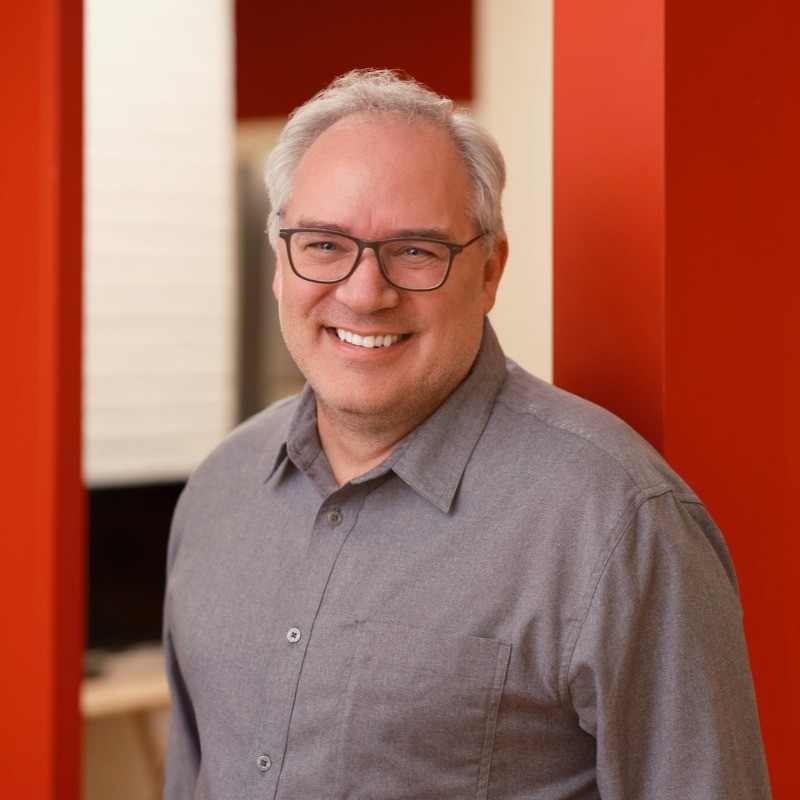From ambition to adoption, with Steve Kemp
CAGBC staff on September 17, 2025
- Theme
- CAGBC Awards
As a Principal and Senior Energy and Sustainability Specialist at RDH Building Science, Steve Kemp has dedicated his career to advancing high-performance and low-carbon building design. Beyond his professional role, Kemp has logged over 1,000 volunteer hours on Canada Green Building Council (CAGBC) volunteer committees, most particularly with Energy & Engineering Technical Advisory Group (E&E TAG), where he has served as chair and continues to contribute. He has also sat on the LEED Canada Steering Committee, and other CAGBC committees, helping shape rating systems for the Canadian market.
His deep expertise and collaborative approach have made him a trusted voice in guiding the industry toward innovation and impact. His contributions were recently recognized with the 2025 CAGBC Award for a Technical Volunteer. In this interview, he shares what drives his commitment, lessons from his decades of work, and his vision for the next decade of green building in Canada.
With about 1000 hours of volunteering on record (and counting) with CAGBC alone, what keeps you engaged and inspired? What do you get out of your participation and how has it helped your career growth?

It’s been an evolution. Early on, at the beginning of LEED, the consulting firm I was at was producing a significant fraction of all the LEED certifications. I wanted to use that experience to prevent LEED from becoming “broken”. However, as time went on, I became more focused – as the chair of the E&E TAG – on trying to break down the challenging questions we, got to find a way to consensus. It also is an easy way to keep abreast of the upcoming changes to LEED and ZCB. All the way through, I really enjoyed the other volunteers, even when we didn’t agree.
CAGBC’s TAG play a role in shaping rating systems for the Canadian market. How do you ensure standards remain relevant and are kept within reach?
I think finding a balance between stringency and market adoption. Early in my career, I learned from my mentors that the R-2000 (an energy standard for houses, launched in the 1980s) program was considered (by them) a technical success and a marketing failure. R-2000 at the time pushed the air leakage target too far, and it scared away a lot of adopters. If it had started less stringent and phased in higher performance targets, that would have been better. There was a time when I was balking at including embodied carbon into the systems. I felt that we had barely gotten the market to address operating carbon. The rest of the TAG turned me around on that one.
How does the work of technical advisory groups support building code development? What do you think the next decade will bring for the green building movement and what would you like to focus on as a volunteer?
Voluntary standards should be more stringent than minimum code. From the TAG, I understand more about ‘where the puck is going’. At the same time, the resources to understand code impact changes at the national level is impressive and beyond what CAGBC has. The counterpoint is making changes at the national code level is very slow and cumbersome. It can be two years between introducing an idea and getting it approved in published code language. TAG and CAGBC is much faster!
As for the next decade? I hope improving our understanding and designing our buildings better to mitigate the future loading on the electrical grids. I am hearing from some jurisdictions that they have concerns about electrification. They are a clean grid province, but also winter peaking already. Most Canadian grids are winter peaking, and some jurisdictions are more “evolved” than others in their thinking. I think energy storage can help here, as can better passive design being baked into the building. Embodied carbon is also going to continue to evolve. Right now, most projects focus on product substitution, but eventually less material in the building will also need to be addressed. An example of this is architectural massing studies that include embodied carbon.
What does winning this award mean to you?
It’s special. I respect and enjoy working with the CAGBC staff. That this award is from them is very momentous for me.

